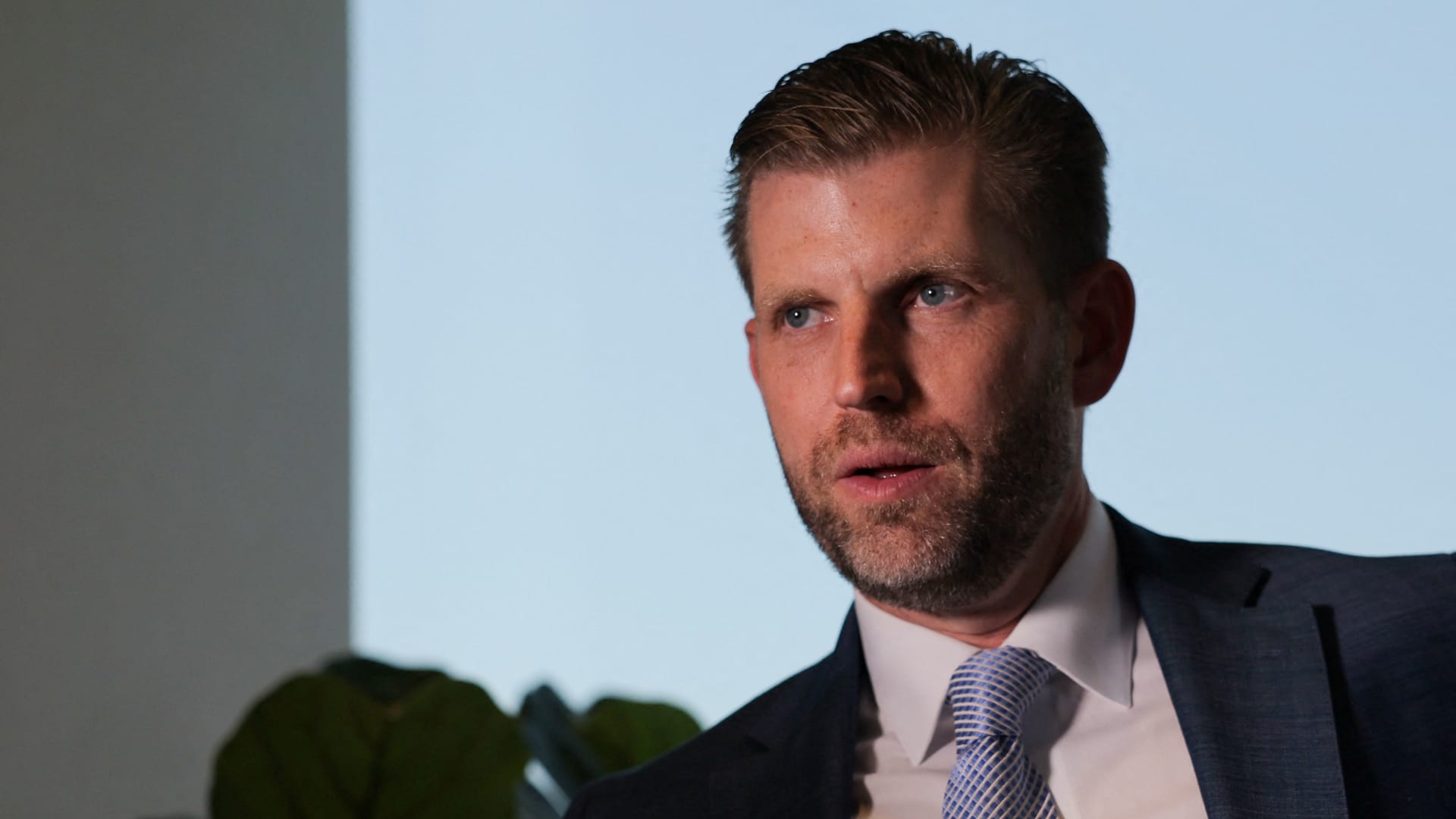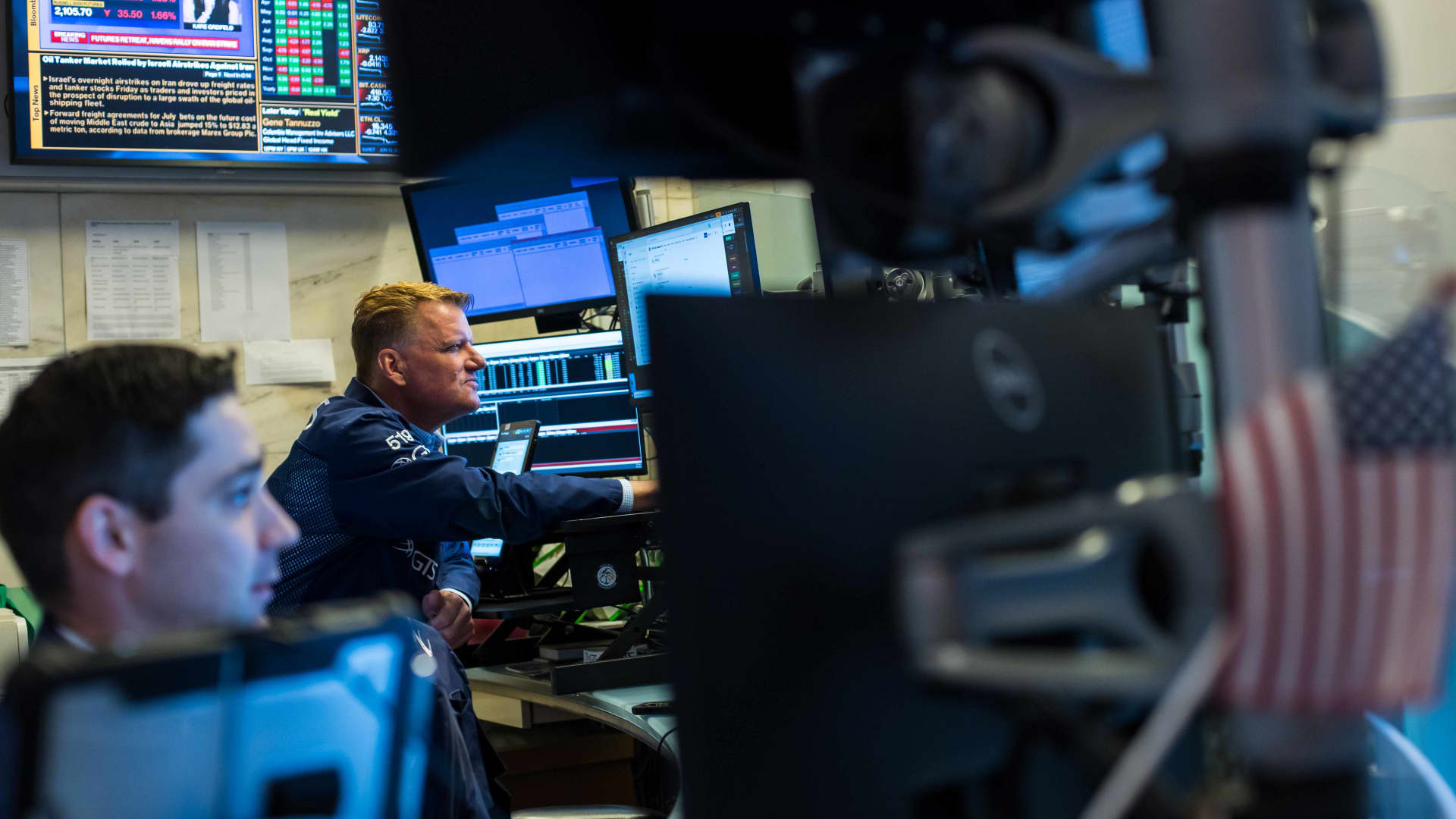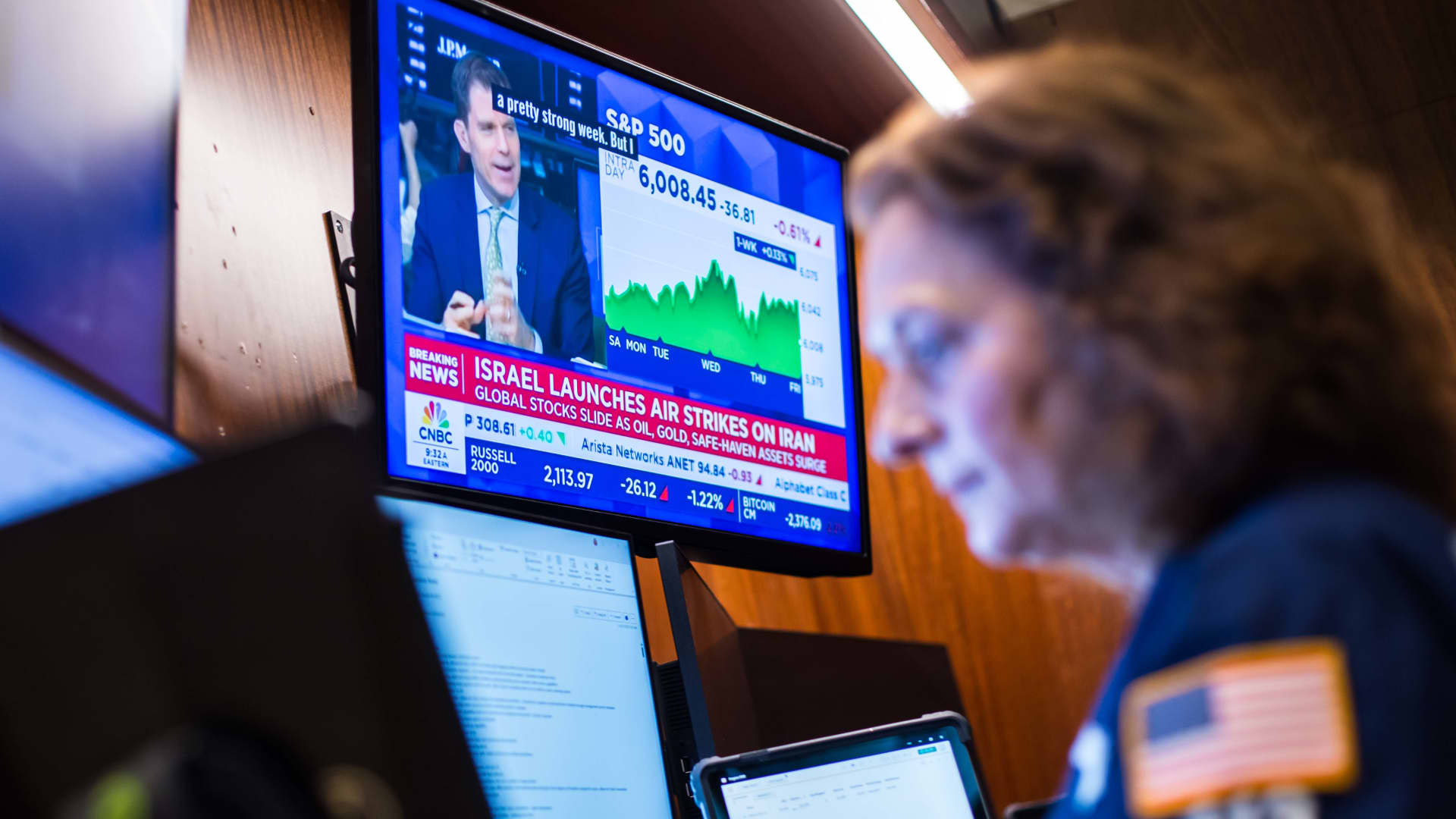DUBAI, United Arab Emirates — Eric Trump has a warning for banks: change the way you operate, or go extinct.
“The modern financial system is broken, it’s slow, it’s expensive,” the executive vice president of the Trump Organization told CNBC’s Dan Murphy in Dubai while discussing the United Arab Emirates’ development as a cryptocurrency hub.
“There’s nothing that can be done on blockchain that can’t be done better than the way that the current financial institutions are working. SWIFT is an absolute disaster,” Eric Trump said on Tuesday, referring to the global international messaging network for financial transactions.
He lambasted what he described as the slowness and inefficiency of the traditional banking system, calling it “antiquated” — a criticism held by many, especially crypto enthusiasts.
The second son of U.S. President Donald Trump has made frequent visits to the UAE in recent years amid expanding Trump-branded real estate projects in the country and wider Gulf region — and as the desert sheikhdom rapidly becomes a global hub for cryptocurrency.
A vocal advocate of digital currencies, Eric Trump in December predicted that bitcoin would reach $1 million while attending the Bitcoin MENA 2024 conference in Abu Dhabi.
Crypto markets have proven to be highly volatile amid a sell-off of risk assets, stoked by President Trump’s trade tariffs imposed on countries worldwide. Bitcoin was trading around $95,357 late Tuesday.
“Our banking system favors the ultra-wealthy,” Eric Trump said. “And what actually got me into [cryptocurrency] is the fact I realized our banking system was weaponized against the vast majority of people in our country, either the people that don’t have the zeros on their balance sheet, or people who might have worn that red hat that said ‘Make America Great Again.’ And it forced me into the crypto world. And I’m telling you, if the banks don’t watch what’s coming, they’re going to be extinct in 10 years.”
A new era for crypto?
His criticism of banks comes as the sector attempts to navigate the rapidly growing cryptocurrency industry, which is decentralizing finance and eliminating the need for traditional intermediaries like banks.
Decentralized finance (DeFi) platforms enable peer-to-peer transactions with competitive or zero transaction processing and account fees, which have typically been a source of revenue for traditional banks.
“You can open up a DeFi app right now, you can open up any cryptocurrency app, and you can send money, wallet to wallet, instantaneously, without the expense, without the variability” of banks, Eric Trump said.
Some financial giants, including JP Morgan and Goldman Sachs, have launched blockchain networks and crypto trading desks in response to the growing popularity of digital currencies.
Still, critics of the relatively new asset class warn that its lack of regulation, security vulnerabilities, volatility and limited consumer protections pose serious risks for users.
The Trump administration has vowed to ring in a booming era for the crypto industry, and both President Trump and his wife Melania have launched their own meme coins, leading to concerns from ethics experts about potential conflicts of interest. The Trump family is also at the helm of crypto platform World Liberty Financial, which was co-founded with real estate billionaire and current White House Middle East envoy Steve Witkoff.
Eric Trump and his older brother Donald Trump Jr. recently announced plans to launch a U.S. dollar-backed stablecoin through World Liberty Financial, and in March launched a new bitcoin mining company called American Bitcoin, co-founded with Hut 8 CEO Asher Genoot.
The UAE, meanwhile, continues to attract international crypto investors, startups, exchanges, and highly-attended events in the sector, thanks in large part to supportive government regulations for the crypto industry. Eric Trump and others in both the Trump Organization and the White House administration have lauded their relationships with Arab Gulf leaders, praising what they see as key growth markets with pro-business policies.
Eric Trump’s comments come ahead of his father’s planned visit to the Gulf region from May 13 to 16, during which he is expected to stop in the UAE, Saudi Arabia and Qatar. Trump will be the first U.S. president to visit the Emirati sheikhdom since George W. Bush in 2008.
The trip is emblematic of the Trump administration’s warm ties with Gulf governments; during his first presidential term, President Trump’s first overseas visit was to Saudi Arabia.

 Economics1 week ago
Economics1 week ago
 Economics1 week ago
Economics1 week ago
 Economics1 week ago
Economics1 week ago
 Finance1 week ago
Finance1 week ago
 Blog Post1 week ago
Blog Post1 week ago
 Economics1 week ago
Economics1 week ago
 Personal Finance1 week ago
Personal Finance1 week ago
 Economics1 week ago
Economics1 week ago














